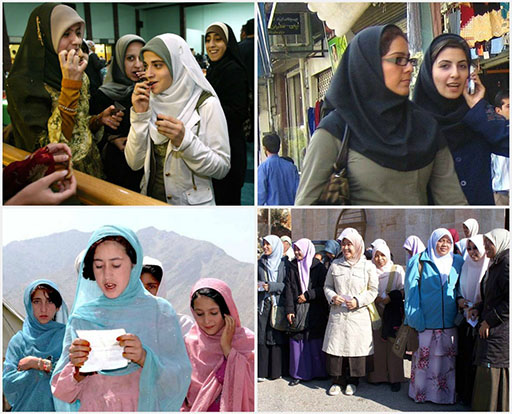
(Photo: United States Federal Government/WikiCommons)
Nadine Osman
Economics, not religion, is the key cause limiting the education of Muslim women, according to new analysis by an American fact-tank group that challenges the long-held assertions that there’s a culture clash between Muslim and the Western over gender equality in education.
As Muslim women move up the educational ladder, the role of religion as a predictor of academic attainment is diminishing, according to the study, which analyzes Pew Research Center (PRC) education data and appears in the journal Population and Development Review.
According to new PRC data, Muslim women have been catching up – not only with Muslim men but also with other women around the world.
The analysis illustrates wealth rather than laws or culture is the most important factor in determining a woman’s educational fate, with women in oil-rich Gulf countries, especially, making some of the biggest educational leaps in recent decades.
Women born between 1976 and 1985 in Saudi Arabia have an average of 11.5 years of schooling, compared with 11.8 years for the country’s young men and just two years of education for older Muslim women born between 1935 and 1955.
These numbers indicate that Saudi Arabia has increased access to schooling for women and has come close to closing the education gender gap. By comparison, the average duration of schooling for young US men and women – across religious groups – is around 13 years.
By contrast in predominantly Muslim and economically poor Mali, young women have an average of only 1.4 years of schooling, compared with 2.7 years for the country’s young men.
Muslim women in Mali born between 1935 and 1955, average half a year of schooling. These figures show that Mali has seen only modest gains in the education of women. The same pattern has unfolded in sub-Saharan Africa overall, where young women average 2.5 years of school, up from 0.8 years of school among the older generation.
To test the extent to which Islam itself influences a woman’s educational attainment, the researchers examined factors in Muslim communities that might play a role, such as the degree of gender discrimination in a country’s family laws, the percentage of its population that is Muslim and the share of Muslims who reported religion is very important to them. The study finds that none of these elements had a significant impact on the results.